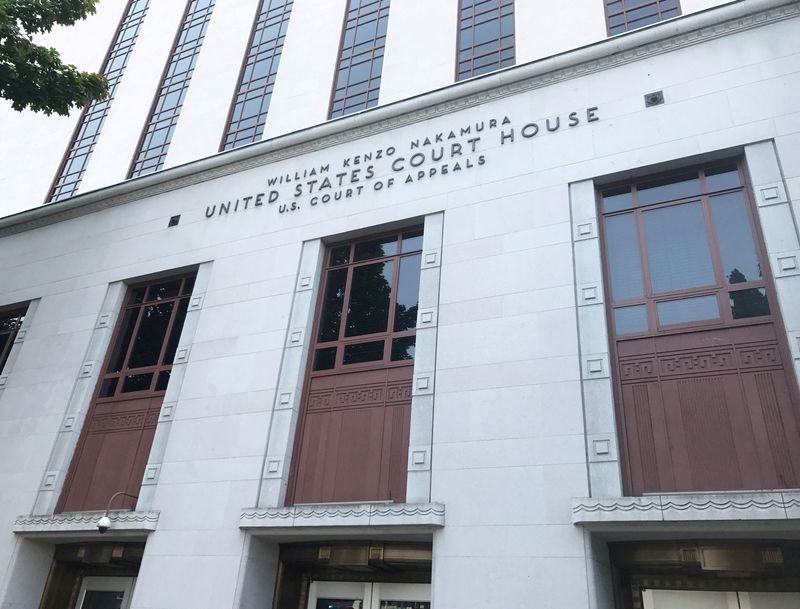By Jonathan Stempel
(Reuters) -A federal appeals court on Tuesday upheld an Oregon law banning most secret recordings of oral conversations, rejecting a First Amendment challenge by Project Veritas, a conservative activist group known for using covert recordings against opponents.
In a 9-2 decision, the 9th U.S. Circuit Court of Appeals in Seattle said the so-called conversational privacy law did not violate Project Veritas' free speech rights.
It also said the law was narrowly tailored to Oregon's significant governmental interest in ensuring that residents know when they are being recorded.
The decision reversed a July 2023 rejection of the law by a divided three-judge panel of the same court.
Eight judges in Tuesday's majority were appointed to the bench by Democratic presidents, while the dissenting judges and the earlier majority were appointed by Republican presidents.
Benjamin Barr, a lawyer for Project Veritas, said the group will appeal to the U.S. Supreme Court.
He said the decision "leaves undercover journalists with their hands tied in Oregon" by impeding their ability to investigate corruption and work with whistleblowers.
Barr also said the First Amendment of the U.S. Constitution should allow secret recordings "just as robustly as it has long shielded traditional practices, like safeguarding the venerable reporter's notepad."
Dan Rayfield, Oregon's new attorney general, said in a statement he was pleased the court recognized the recordings ban as "an important safeguard" for people's right to privacy.
Dating from 1959, Oregon's law contains exceptions that allow recording during a felony that endangers human life, and recording a law enforcement officer performing official duties.
Project Veritas sued in 2020, saying the law made it impossible in Portland, the state's largest city, to record protests about racial injustice following the killing that May of George Floyd by a Minneapolis police officer.
The group frequently publishes edited recordings that portray liberal organizations and media negatively. Critics have called its tactics deceptive.
RECORDINGS NOT 'INDISPENSABLE'
During oral arguments last June, Barr told the appeals court that secretly recorded conversations could have a big impact.
He pointed to a 2005 "Access Hollywood" video of President-elect Donald Trump boasting graphically about forcing himself on women, which drew wide attention during the 2016 U.S. presidential campaign.
Oregon countered that the law did not discriminate based on content, and that recording private conversations was not constitutionally protected "expressive conduct."
Writing for Tuesday's majority, Circuit Judge Morgan Christen warned of the risk of secret recordings being shared across the internet, or selectively edited to create audio "deepfakes" where people appear to say things they never said.
Christen, an appointee of former Democratic President Barack Obama, said the law left Project Veritas journalists ample means to go undercover and report what they see and hear, as journalists have done for centuries.
"Powerful exposes authored by people like Nellie Bly, Gloria Steinem, and John Howard Griffin clearly demonstrate what our court has long recognized: 'hidden mechanical contrivances' are not 'indispensable tools' of newsgathering," the judge said.
Circuit Judge Kenneth Lee, appointed during Trump's first White House term, dissented.

He said Oregon's "grossly overbroad" law imperiled journalists' ability to report newsworthy events, whether involving conversations conducted loudly in public, abuses of power or "the privileged behaving badly."
The case is Project Veritas et al v. Schmidt et al, 9th U.S. Circuit Court of Appeals, No. 22-3527.